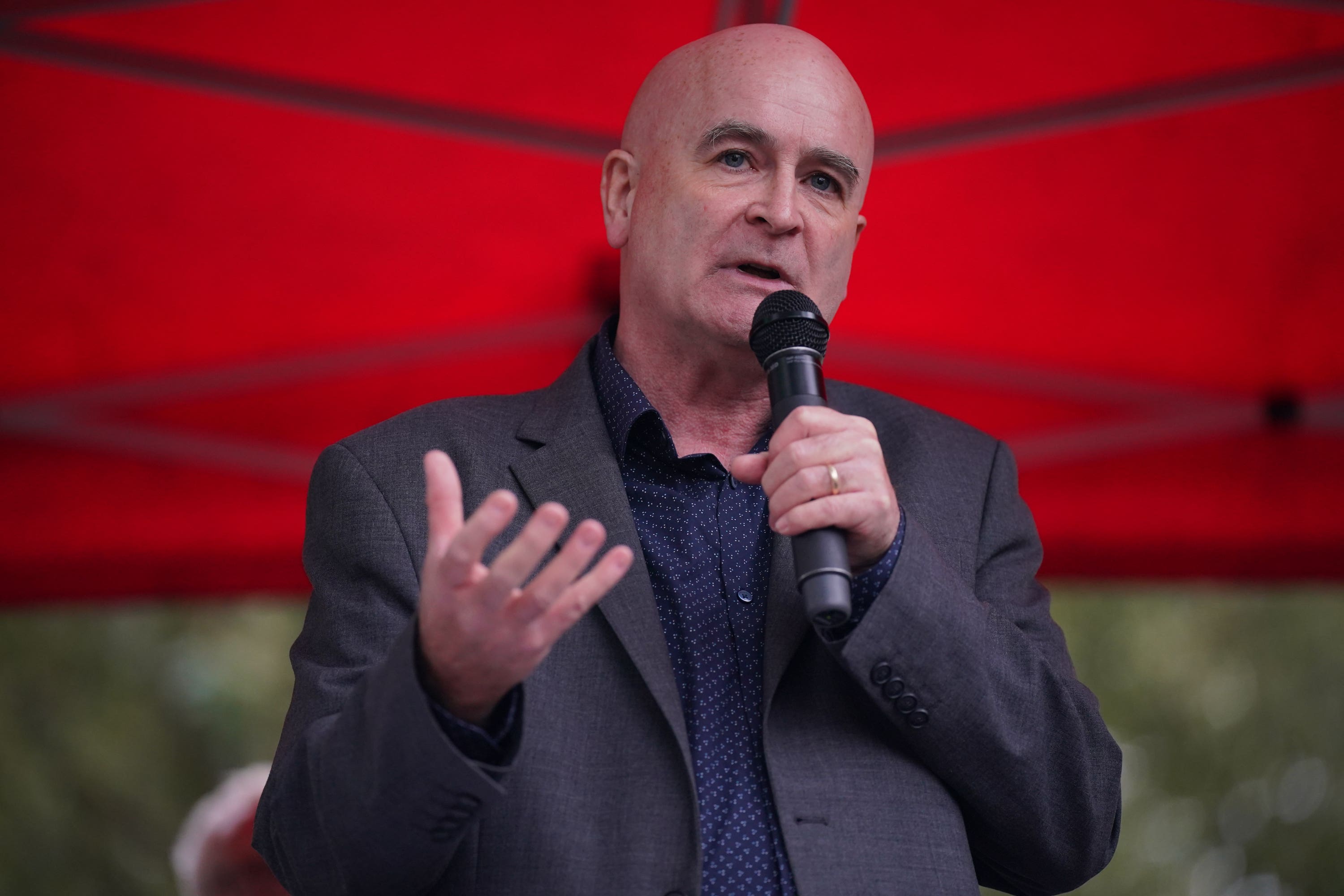Marchers campaign against plans to close railway station ticket offices
The protest comes on the eve of the final day of consultation on the controversial plans.

Your support helps us to tell the story
From reproductive rights to climate change to Big Tech, The Independent is on the ground when the story is developing. Whether it's investigating the financials of Elon Musk's pro-Trump PAC or producing our latest documentary, 'The A Word', which shines a light on the American women fighting for reproductive rights, we know how important it is to parse out the facts from the messaging.
At such a critical moment in US history, we need reporters on the ground. Your donation allows us to keep sending journalists to speak to both sides of the story.
The Independent is trusted by Americans across the entire political spectrum. And unlike many other quality news outlets, we choose not to lock Americans out of our reporting and analysis with paywalls. We believe quality journalism should be available to everyone, paid for by those who can afford it.
Your support makes all the difference.RMT general secretary Mick Lynch has called the fight to stop the closure of ticket offices at railway stations a “fight for the future of our communities”.
Mr Lynch spoke in front of hundreds of people at a demonstration organised by the RMT union outside Downing Street on Thursday evening.
The protest comes on the eve of the final day of consultation on the controversial plans.
More than 460,000 people have responded to the proposals, and London TravelWatch and Transport Focus will assess the response to the consultation after it ends on Friday.
Addressing the crowd, Mr Lynch said: “It’s a fight for the future of our communities.
“People up and down this country are sick and tired of their communities being hollowed out.
“Our Post Offices are being closed, our pubs are being closed.
“Our banks have withdrawn from the High Street.
“Everywhere we go, all the community assets are being hollowed out in the name of profit, in the name of modernisation.”
Mr Lynch added that the trade union members will “stand up for themselves”.
“We’re going to stand up for ourselves, not rely on the professional politicians, and the shysters,” he said.
“Let’s have a working class movement that serves our interests that serves our people are waiting for our class solidarity.
“Let’s get in before the rain comes.
“There’s a storm coming, make sure the Tories feel it.”
Rail unions and passenger groups have warned the closures would particularly affect disabled and elderly passengers.
While companies say many offices sell few tickets because of increasing online sales, and argue that moving staff from ticket offices on to station concourses will offer more help for passengers.
Damien Frettsome, 36, from Hinckley, Leicestershire, said that a “huge portion” of people would be excluded from using the railway if ticket offices were closed.
“A huge portion of society, and different groups, wouldn’t be able to use the railway, or would have issues using the railway,” he said.
Londoner Elaine Bromon said that closing ticket offices was the “thin edge of the wedge”.
“I passionately believe in hanging onto the ticket offices for loads of reasons,” she said.
“I’m a Londoner, I live here, I watch people who can’t speak English grappling with the ticket offices.
“There’s people with disabilities… you’ve only got to leave your glasses at home and you can’t see the automated ticket office.
“To me it’s the thin edge of the wedge.
“I think this will go and then cash will go.
“It’s just one thing after another.”